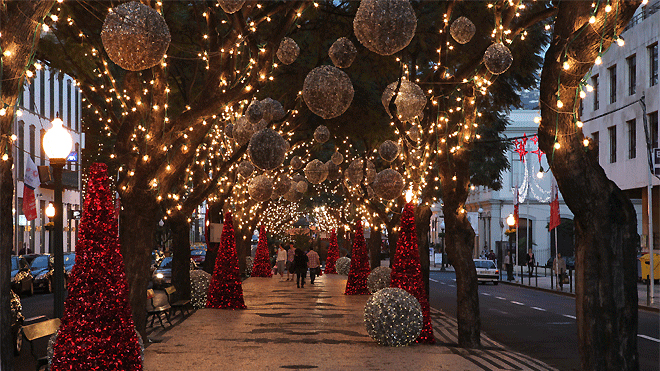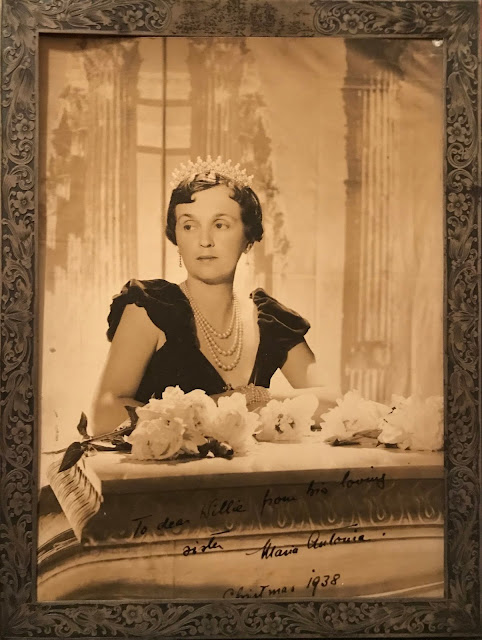Christmas in the United States is often associated with festive traditions and cultural influences from Europe. However, a lesser-known aspect of American holiday celebrations is the significant impact that royal Portuguese families have had on shaping these traditions. This article delves into the fascinating story of how the Portuguese royal family, particularly King Carlos I and Queen Amélie of Portugal, played a crucial role in popularizing Christmas customs in the United States during the late 19th and early 20th centuries.
King Carlos I and Queen Amélie of Portugal, who ruled from 1889 to 1908, were instrumental in introducing European customs to the American public. Their influence was largely due to their extensive travels and diplomatic engagements with the United States. The royal couple's visits to America not only strengthened diplomatic ties but also brought with them cherished traditions from their homeland, which eventually became integral to American holiday celebrations. This article explores the fascinating story of how the Portuguese royal family contributed to the evolution of American Christmas customs, shedding light on a lesser-known chapter in American cultural history.
what is the history of portuguese christmas traditions in the usa
 The history of Portuguese Christmas traditions in the USA is deeply rooted in the cultural exchange and immigration patterns between Portugal and the United States. The Portuguese royal family, particularly King Carlos I and Queen Amélie of Portugal, played a significant role in popularizing Christmas customs in the United States during the late 19th and early 20th centuries.
King Carlos I and Queen Amélie, who ruled from 1889 to 1908, were instrumental in introducing European customs to the American public through their extensive travels and diplomatic engagements with the United States. Their visits not only strengthened diplomatic ties but also brought with them cherished traditions from their homeland, which eventually became integral to American holiday celebrations.
The Portuguese royal family's influence on American Christmas customs was largely due to their exposure to European traditions during their travels. They brought with them customs such as the decorated Christmas tree, which was initially popularized in Germany but gained widespread acceptance in the United States through their efforts.
The Portuguese royal family's impact on American Christmas traditions was also facilitated by the significant Portuguese immigration to the United States during the late 19th and early 20th centuries. As Portuguese immigrants settled in the United States, they brought with them their own cultural practices and traditions, including those related to Christmas. This cultural exchange contributed to the blending of European and American customs, resulting in the unique Christmas traditions seen in the United States today.
In summary, the history of Portuguese Christmas traditions in the USA is characterized by the significant influence of the Portuguese royal family, particularly King Carlos I and Queen Amélie, in popularizing European customs in the United States. This influence was facilitated by their travels and diplomatic engagements, as well as the immigration of Portuguese people to the United States, which contributed to the blending of European and American customs and the development of unique Christmas traditions in the country.
The history of Portuguese Christmas traditions in the USA is deeply rooted in the cultural exchange and immigration patterns between Portugal and the United States. The Portuguese royal family, particularly King Carlos I and Queen Amélie of Portugal, played a significant role in popularizing Christmas customs in the United States during the late 19th and early 20th centuries.
King Carlos I and Queen Amélie, who ruled from 1889 to 1908, were instrumental in introducing European customs to the American public through their extensive travels and diplomatic engagements with the United States. Their visits not only strengthened diplomatic ties but also brought with them cherished traditions from their homeland, which eventually became integral to American holiday celebrations.
The Portuguese royal family's influence on American Christmas customs was largely due to their exposure to European traditions during their travels. They brought with them customs such as the decorated Christmas tree, which was initially popularized in Germany but gained widespread acceptance in the United States through their efforts.
The Portuguese royal family's impact on American Christmas traditions was also facilitated by the significant Portuguese immigration to the United States during the late 19th and early 20th centuries. As Portuguese immigrants settled in the United States, they brought with them their own cultural practices and traditions, including those related to Christmas. This cultural exchange contributed to the blending of European and American customs, resulting in the unique Christmas traditions seen in the United States today.
In summary, the history of Portuguese Christmas traditions in the USA is characterized by the significant influence of the Portuguese royal family, particularly King Carlos I and Queen Amélie, in popularizing European customs in the United States. This influence was facilitated by their travels and diplomatic engagements, as well as the immigration of Portuguese people to the United States, which contributed to the blending of European and American customs and the development of unique Christmas traditions in the country.what are some popular portuguese christmas dishes in the usa
 Portuguese Christmas dishes have gained popularity in the United States, particularly among the Portuguese-American community. Some popular dishes that are commonly enjoyed during Christmas in the USA include:
Bacalhau com Broa: A traditional Portuguese dish made with codfish, broa (a type of Portuguese bread), and often served with boiled potatoes and onions.
Rabanadas Natalícias: A sweet Portuguese Christmas treat, similar to French toast, made with slices of bread soaked in milk, wine, or sugar syrup, then fried and sprinkled with cinnamon sugar.
Arroz Doce de Natal: A Portuguese version of rice pudding, made with whole milk, sugar, and spices, often served warm or chilled.
Sonhos Fritos de Natal: Fried dough balls typically enjoyed during the holiday season, made with flour, milk, lemon peel, and eggs, and deep-fried until golden.
Bolo Rei: A traditional Portuguese Christmas cake, often served toasted with a cup of warm milk or coffee.
These dishes are often prepared and shared among families and friends during the holiday season, reflecting the cultural heritage and traditions of the Portuguese community in the United States.
Portuguese Christmas dishes have gained popularity in the United States, particularly among the Portuguese-American community. Some popular dishes that are commonly enjoyed during Christmas in the USA include:
Bacalhau com Broa: A traditional Portuguese dish made with codfish, broa (a type of Portuguese bread), and often served with boiled potatoes and onions.
Rabanadas Natalícias: A sweet Portuguese Christmas treat, similar to French toast, made with slices of bread soaked in milk, wine, or sugar syrup, then fried and sprinkled with cinnamon sugar.
Arroz Doce de Natal: A Portuguese version of rice pudding, made with whole milk, sugar, and spices, often served warm or chilled.
Sonhos Fritos de Natal: Fried dough balls typically enjoyed during the holiday season, made with flour, milk, lemon peel, and eggs, and deep-fried until golden.
Bolo Rei: A traditional Portuguese Christmas cake, often served toasted with a cup of warm milk or coffee.
These dishes are often prepared and shared among families and friends during the holiday season, reflecting the cultural heritage and traditions of the Portuguese community in the United States.where can i find portuguese christmas dishes in the usa
Portuguese Christmas dishes can be found in various parts of the United States, particularly in areas with significant Portuguese-American populations. Here are some places where you can find traditional Portuguese Christmas dishes in the USA: Portuguese-American Communities: Cities with large Portuguese-American populations, such as Providence, Rhode Island; Fall River, Massachusetts; and New Bedford, Massachusetts, are likely to have restaurants and bakeries serving traditional Portuguese Christmas dishes. Portuguese Restaurants: Restaurants specializing in Portuguese cuisine, like Portuguese for a Day Tours in the United States, offer authentic Portuguese dishes, including those typically served during Christmas. Portuguese Bakeries: Bakeries that specialize in traditional Portuguese pastries and breads, like Bread and Pastry in New York City, may offer festive Portuguese Christmas treats like Rabanadas and Bolo Rei. Food Festivals and Events: Attend Portuguese cultural festivals and events, such as the Festa do Avante in New Bedford, Massachusetts, or the Portuguese Festival in Providence, Rhode Island, which often feature traditional Portuguese Christmas dishes. Online Recipes and Delivery: For those who cannot access these locations, online recipes and food delivery services can help you prepare and enjoy traditional Portuguese Christmas dishes from the comfort of your own home. These are just a few examples of where you can find Portuguese Christmas dishes in the USA. You can also search for local Portuguese restaurants, bakeries, or cultural events in your area to experience the festive flavors of Portugal during the holiday season.
“To dear Willie from his loving sister —Maria Antonia. — Christmas 1938”
Infanta Maria Antónia of Portugal (1903-1973) in a signed photo to her brother-in-law William Astor Chanler, Jr. (1904-2002).
Infanta Maria Antónia of Portugal married Sidney Ashley Chanler in 1934.
You can read more about the Infanta and her family here: https://eurohistoryjournal.blogspot.com/2019/06/the-portuguese-infanta-and-blue-blooded.html
As we conclude our exploration of the fascinating story of how the Portuguese royal family contributed to the evolution of American Christmas customs, we are reminded of the profound impact that cultural exchange can have on shaping our traditions. The Portuguese royal family played a significant role in popularizing European customs in the United States, particularly during the late 19th and early 20th centuries. Their influence was largely due to their extensive travels and diplomatic engagements with the United States, which allowed them to introduce cherished traditions from their homeland to the American public.
As we reflect on the Portuguese royal family's role in shaping American Christmas traditions, we are reminded of the importance of preserving cultural heritage. The story of how the Portuguese royal family contributed to the evolution of American Christmas customs serves as a testament to the power of cultural exchange and the enduring impact that traditions can have on our lives. As we move forward, it is crucial that we continue to celebrate and honor our cultural heritage, recognizing the significant role that it plays in shaping our identities and traditions. By doing so, we can ensure that the rich cultural tapestry of our societies continues to thrive, inspiring future generations to appreciate and respect the traditions that have been passed down to us.



No comments:
Post a Comment